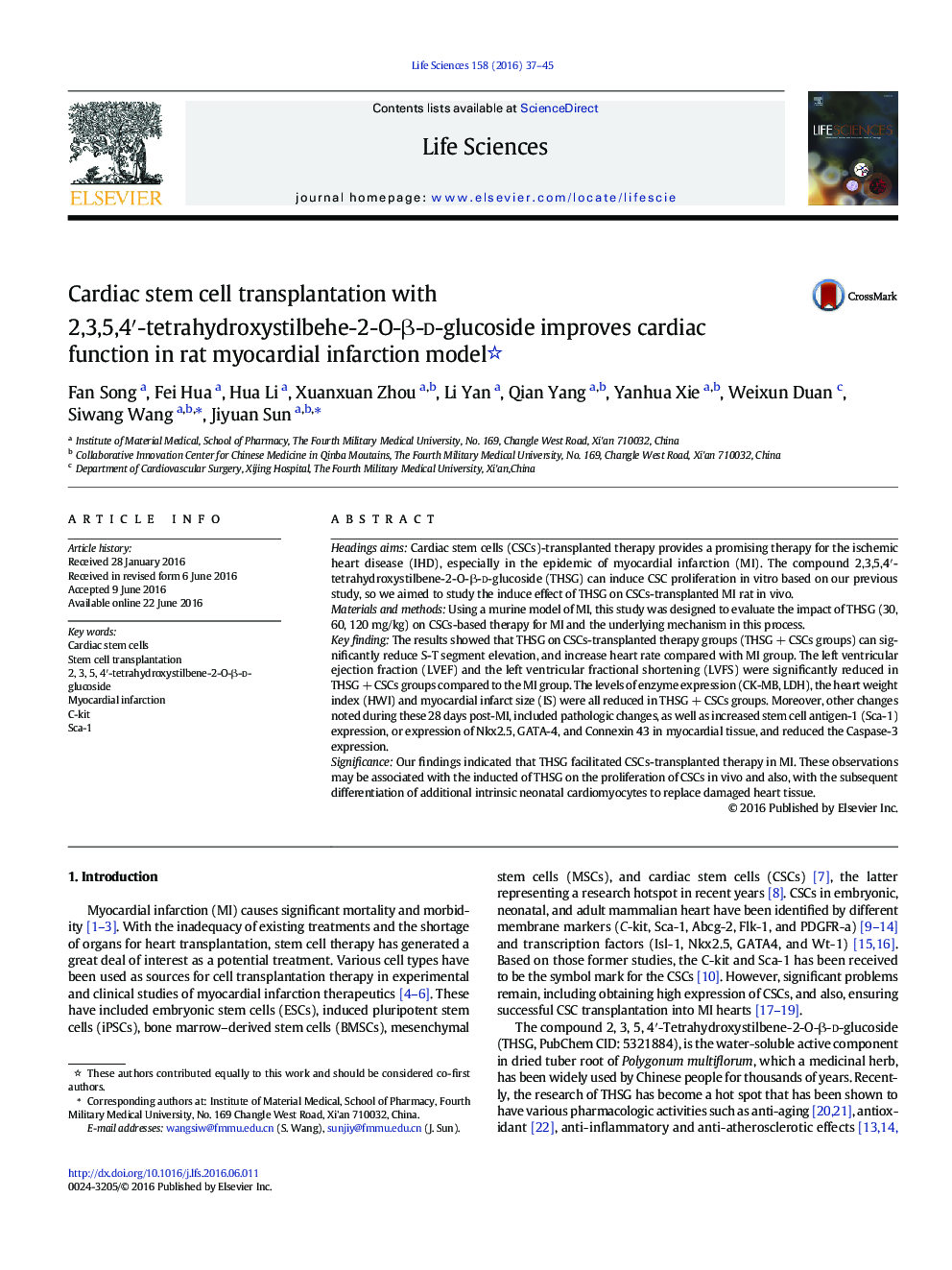| Article ID | Journal | Published Year | Pages | File Type |
|---|---|---|---|---|
| 2550452 | Life Sciences | 2016 | 9 Pages |
Headings aimsCardiac stem cells (CSCs)-transplanted therapy provides a promising therapy for the ischemic heart disease (IHD), especially in the epidemic of myocardial infarction (MI). The compound 2,3,5,4′-tetrahydroxystilbene-2-O-β-d-glucoside (THSG) can induce CSC proliferation in vitro based on our previous study, so we aimed to study the induce effect of THSG on CSCs-transplanted MI rat in vivo.Materials and methodsUsing a murine model of MI, this study was designed to evaluate the impact of THSG (30, 60, 120 mg/kg) on CSCs-based therapy for MI and the underlying mechanism in this process.Key findingThe results showed that THSG on CSCs-transplanted therapy groups (THSG + CSCs groups) can significantly reduce S-T segment elevation, and increase heart rate compared with MI group. The left ventricular ejection fraction (LVEF) and the left ventricular fractional shortening (LVFS) were significantly reduced in THSG + CSCs groups compared to the MI group. The levels of enzyme expression (CK-MB, LDH), the heart weight index (HWI) and myocardial infarct size (IS) were all reduced in THSG + CSCs groups. Moreover, other changes noted during these 28 days post-MI, included pathologic changes, as well as increased stem cell antigen-1 (Sca-1) expression, or expression of Nkx2.5, GATA-4, and Connexin 43 in myocardial tissue, and reduced the Caspase-3 expression.SignificanceOur findings indicated that THSG facilitated CSCs-transplanted therapy in MI. These observations may be associated with the inducted of THSG on the proliferation of CSCs in vivo and also, with the subsequent differentiation of additional intrinsic neonatal cardiomyocytes to replace damaged heart tissue.
